Abstract
The open-access high dependency bleeding unit in Aberdeen admits all patients with suspected gastrointestinal bleeding from a stable adult population of 468,000. The aim is to reduce mortality, morbidity and hospital stay, and create a prospective whole community database. An agreed management protocol is based on prompt resuscitation and early diagnosis. From October 1991 to September 1993 there were 1,602 consecutive admissions with suspected upper or lower gastrointestinal haemorrhage. Bleeding was confirmed in 1,098 of 1,324 patients with presumed upper gastrointestinal haemorrhage, (117 bleeding episodes per 100,000 per year). The overall 30-day mortality was 3.9%, with all deaths attributable to significant concurrent illness. Mortality from peptic ulcer bleeding was 5.3%, with an operation rate of 17% and surgical mortality of 8%. Rapid diagnosis allowed 48% of 523 patients with trivial bleeds to be discharged after a median stay of 24 hours. Centralised expertise and equipment is the essence of the unit's success. The interests of patient care are better served, nursing skills are better developed and teaching opportunities better structured. The major improvement in clinical care, welcomed by hospital colleagues, management and general practitioners, makes the unit an indispensable part of acute medical provision.
Full text
PDF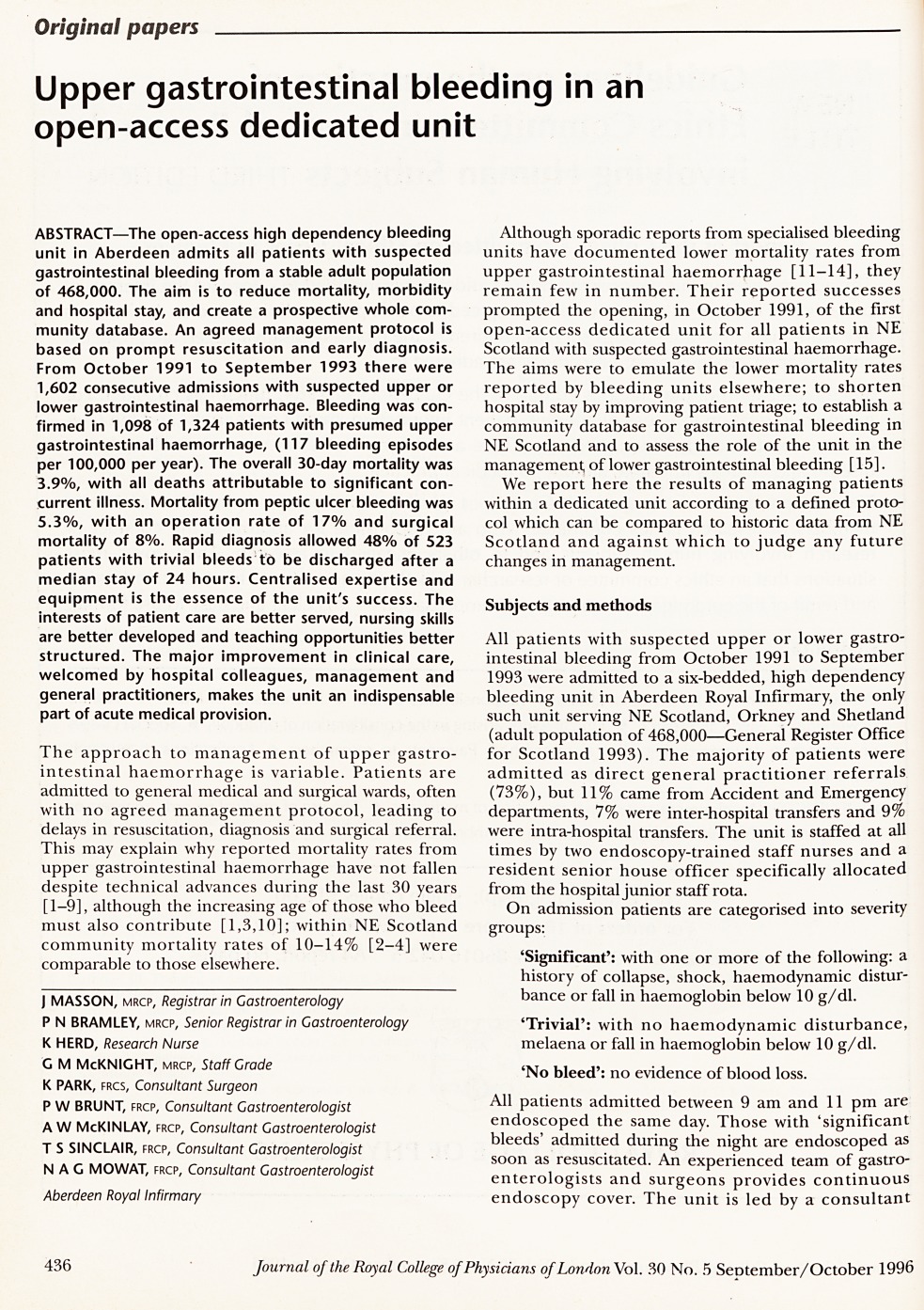
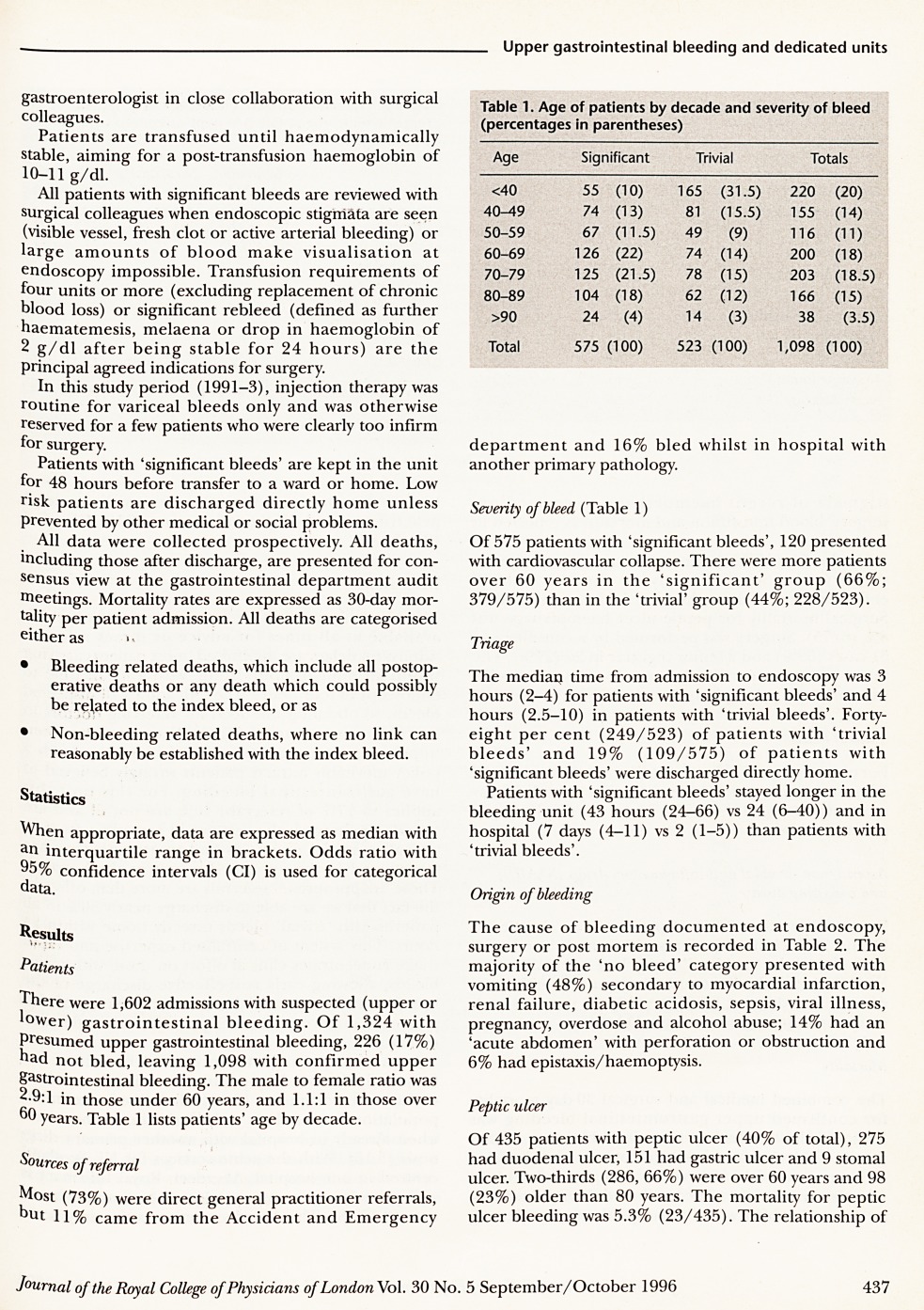
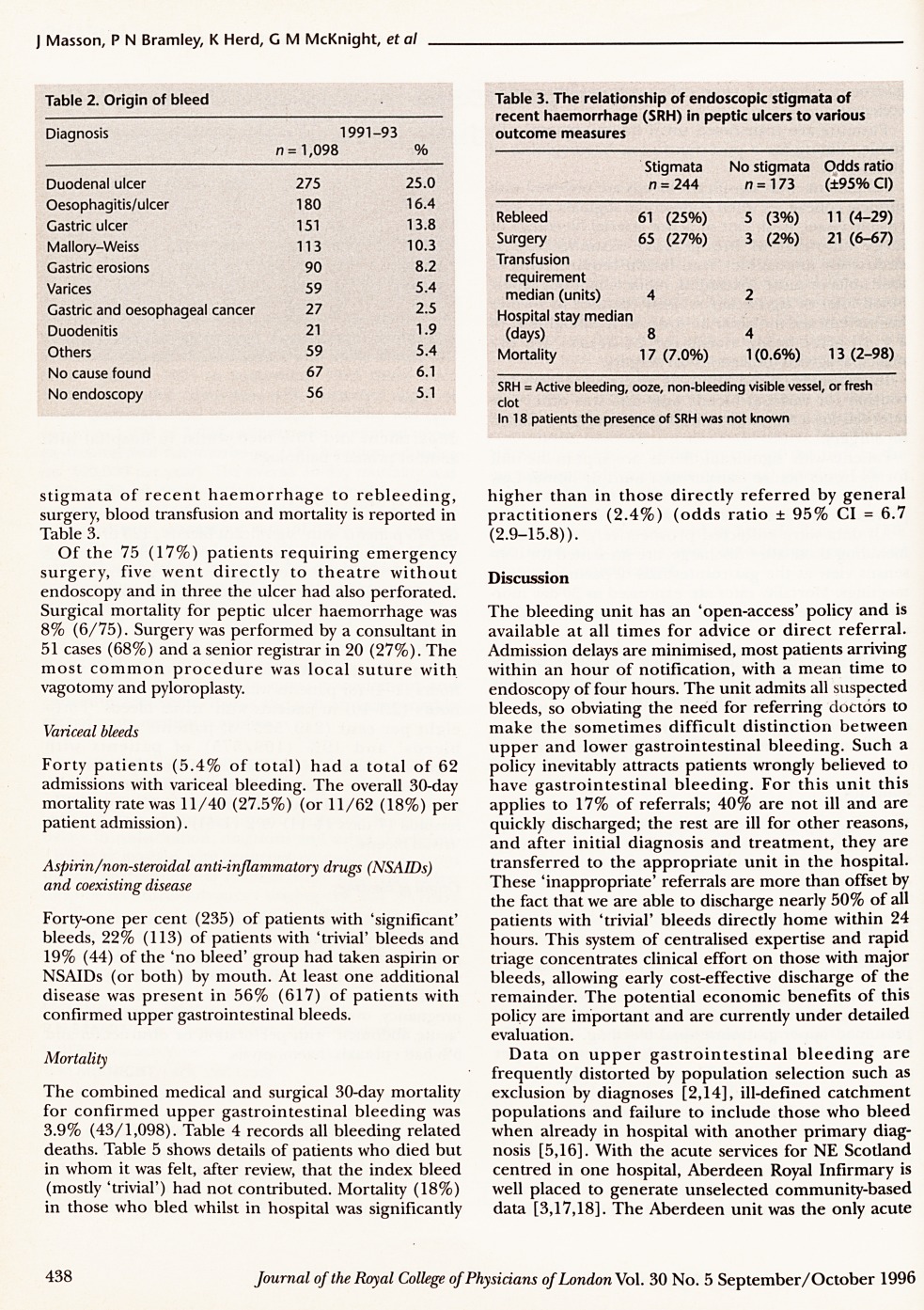
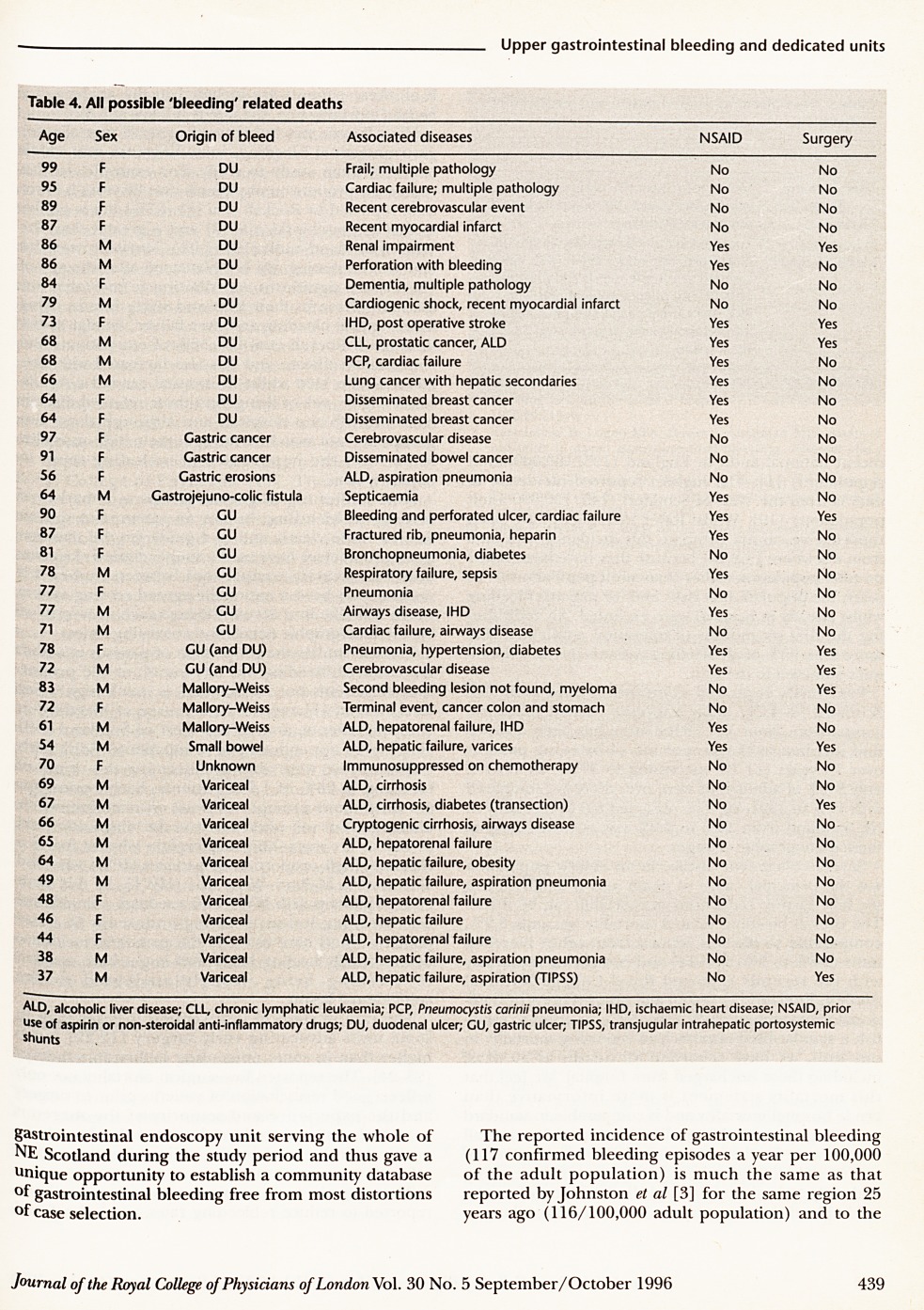
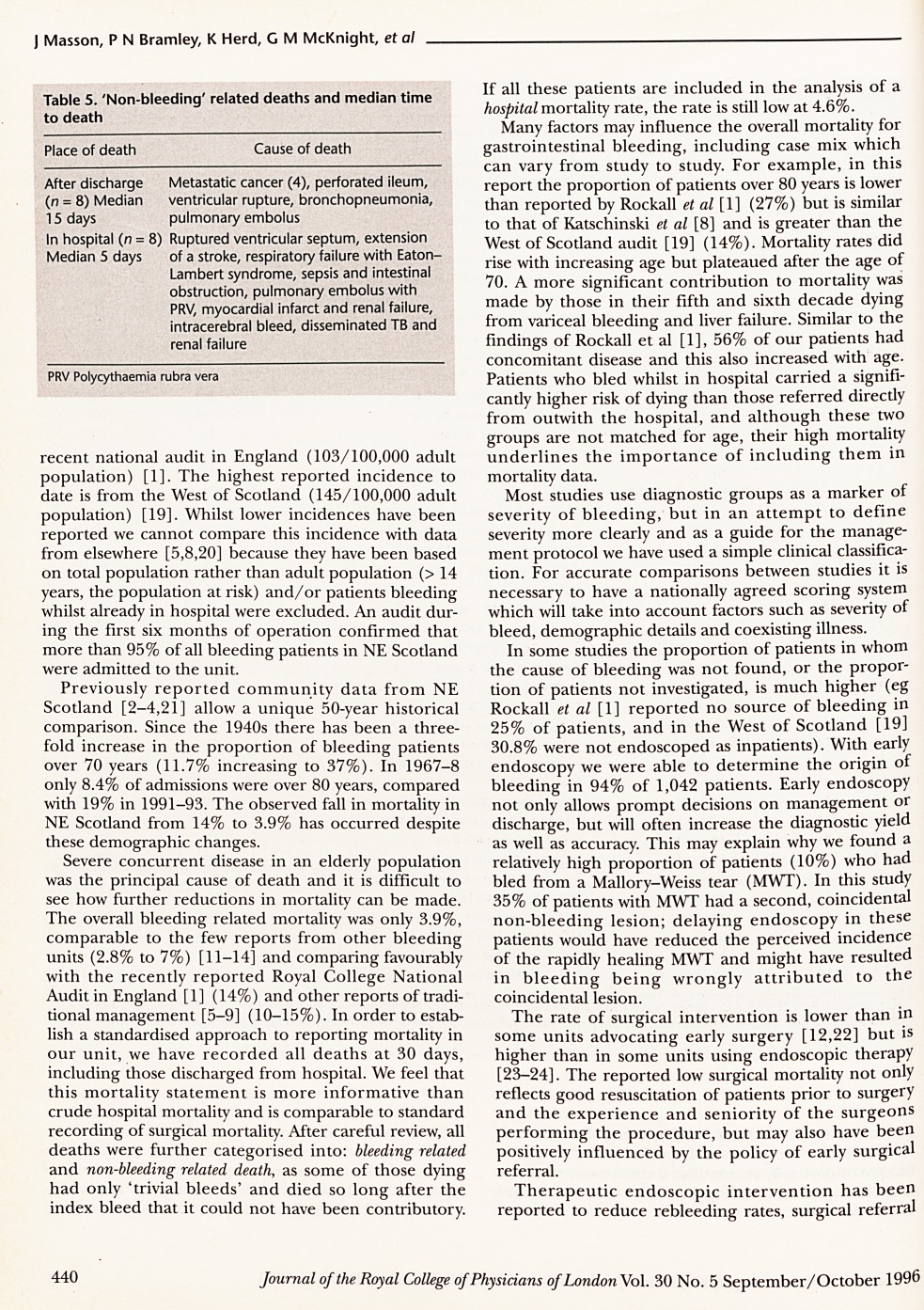
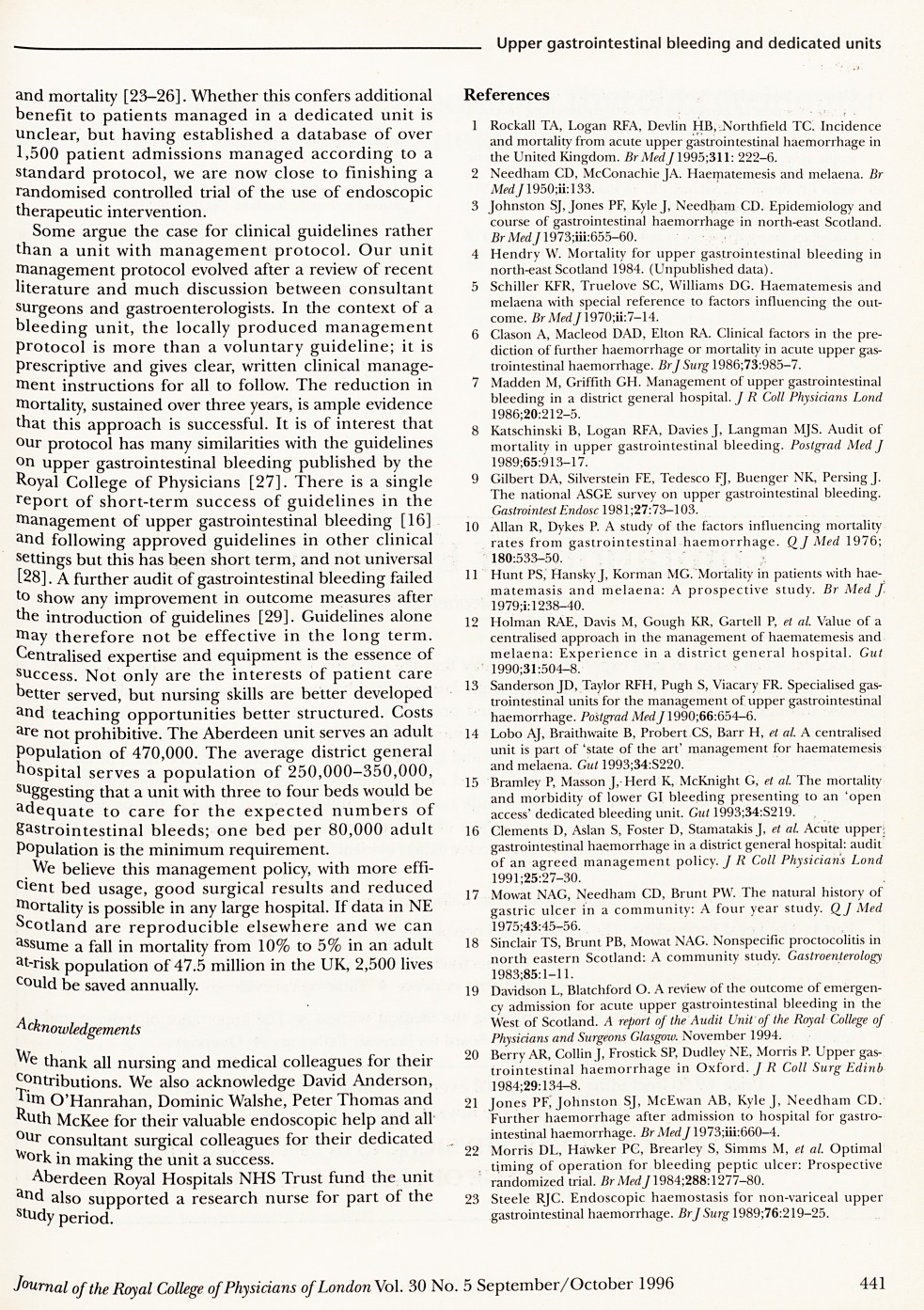
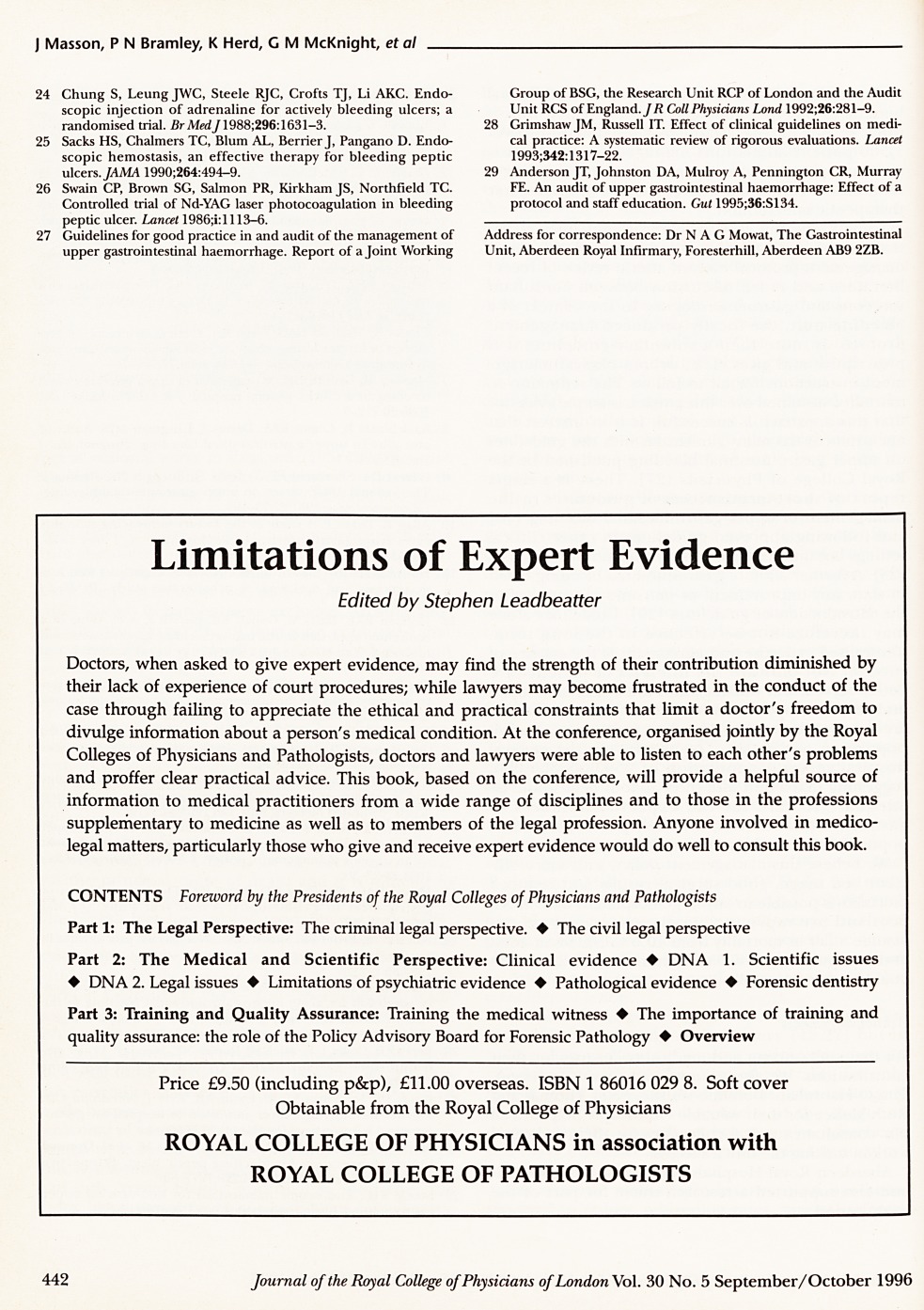
Contributor Information
J Masson, Registrar in Gastroenterology, Aberdeen Royal Infirmary.
P N Bramley, Senior Registrar in Gastroenterology, Aberdeen Royal Infirmary.
K Herd, Research Nurse, Aberdeen Royal Infirmary.
G M McKnight, Staff Grade, Aberdeen Royal Infirmary.
K Park, Consultant Surgeon, Aberdeen Royal Infirmary.
P W Brunt, Consultant Gastroenterologist, Aberdeen Royal Infirmary.
A W McKinlay, Consultant Gastroenterologist, Aberdeen Royal Infirmary.
T S Sinclair, Consultant Gastroenterologist, Aberdeen Royal Infirmary.
N A G Mowat, Consultant Gastroenterologist, Aberdeen Royal Infirmary.


